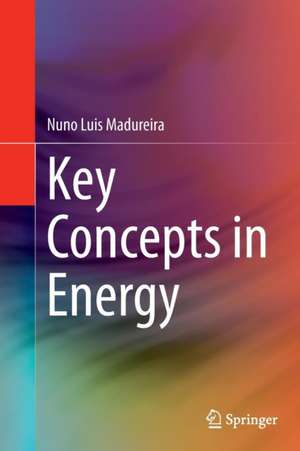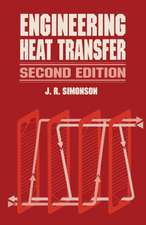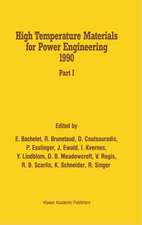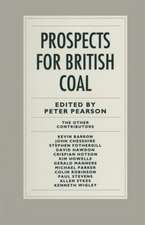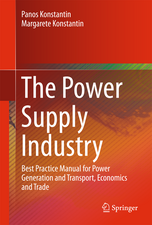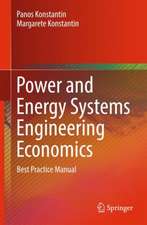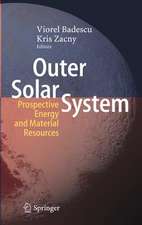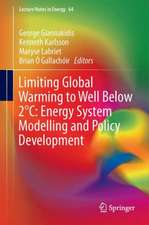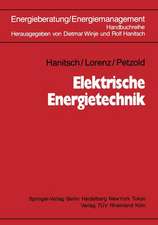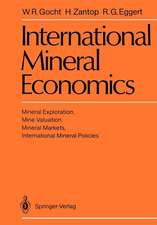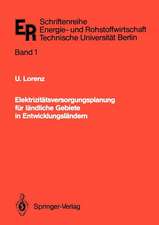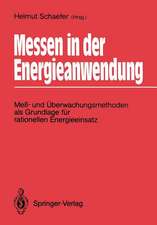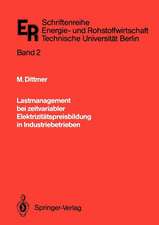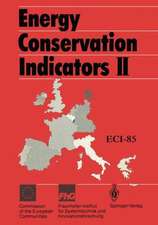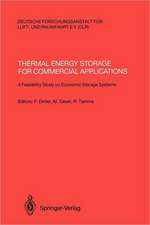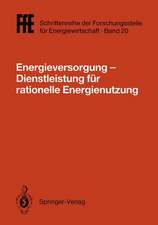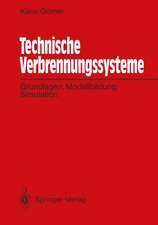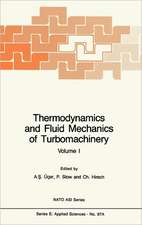Key Concepts in Energy
Autor Nuno Luis Madureiraen Limba Engleză Paperback – 3 sep 2016
Key concepts in energy considers the process of energy-substitutions and analyzes it as a process of complementary usages, hybridization and technological mixes. The ex-post view tends to focus on replacement from among alternative energy-technologies and is basically innovation-centric. This means that little attention has been given to factors such as the windows of opportunities created by governments, inventors and entrepreneurs.
This book highlights how key energy concepts surfaced, tracing their evolution throughout history. It encompasses four economic concepts (rebound effect, energy intensity, marginal cost pricing and levelized cost accounting) and four technological-engineering concepts (primary/final energy, technological hybridization, last gasp and probable oil reserves). The main benefit from reading the book is a cross disciplinary overview of energy fundamentals in a short and focused reading.
| Toate formatele și edițiile | Preț | Express |
|---|---|---|
| Paperback (1) | 637.28 lei 6-8 săpt. | |
| Springer International Publishing – 3 sep 2016 | 637.28 lei 6-8 săpt. | |
| Hardback (1) | 643.48 lei 6-8 săpt. | |
| Springer International Publishing – 19 mar 2014 | 643.48 lei 6-8 săpt. |
Preț: 637.28 lei
Preț vechi: 749.73 lei
-15% Nou
Puncte Express: 956
Preț estimativ în valută:
121.96€ • 126.86$ • 100.68£
121.96€ • 126.86$ • 100.68£
Carte tipărită la comandă
Livrare economică 14-28 aprilie
Preluare comenzi: 021 569.72.76
Specificații
ISBN-13: 9783319374727
ISBN-10: 3319374729
Pagini: 229
Ilustrații: VII, 222 p. 19 illus.
Dimensiuni: 155 x 235 x 12 mm
Greutate: 0.33 kg
Ediția:Softcover reprint of the original 1st ed. 2014
Editura: Springer International Publishing
Colecția Springer
Locul publicării:Cham, Switzerland
ISBN-10: 3319374729
Pagini: 229
Ilustrații: VII, 222 p. 19 illus.
Dimensiuni: 155 x 235 x 12 mm
Greutate: 0.33 kg
Ediția:Softcover reprint of the original 1st ed. 2014
Editura: Springer International Publishing
Colecția Springer
Locul publicării:Cham, Switzerland
Cuprins
1.- Primary/Secondary/Final Energy 2.- The Rebound Effect 3.- Technological Hybridization 4.- The Last Gasp 5.- Probable Oil Reserves 6.- Energy Intesnity 7.- Marginal Cost 8.- Levelized Cost Accounting 9.- Final Remarks.
Notă biografică
Nuno Luis Madureira is Professor at Lisbon University Institute. With a formative background in history he became furthermore interested in economics, environmental and engineering sciences developing a cross-disciplinary approach to global energy issues. The book “Key concepts in energy history” results from several years of research in European archives but also from the experience and archival investigation pursued as visiting scholar at Harvard University and Berkeley University. Since 2006 the author has also carried on several assessments for the European Science Foundation.
Textul de pe ultima copertă
Organized around eight fundamental ideas, Key concepts in energy history explores the discoveries, technologies and new paradigms in the field of energy, and how they have changed the course of history. Complex technical concepts such as the “rebound effect”, “technological hybridization”, “marginal cost pricing” are explained in clear terms and a balanced and concise account of t energy sources in the XIX and XX century such as wood, coal, oil, hydroelectricity and nuclear energy is provided.
Key concepts in energy considers the process of energy-substitutions and analyzes it as a process of complementary usages, hybridization and technological mixes. The ex-post view tends to focus on replacement from among alternative energy-technologies and is basically innovation-centric. This means that little attention has been given to factors such as the windows of opportunities created by governments, inventors and entrepreneurs.
This book highlights how key energy concepts surfaced, tracing their evolution throughout history. It encompasses four economic concepts (rebound effect, energy intensity, marginal cost pricing and levelized cost accounting) and four technological-engineering concepts (primary/final energy, technological hybridization, last gasp and probable oil reserves). The main benefit from reading the book is a cross disciplinary overview of energy fundamentals in a short and focused reading.
Key concepts in energy considers the process of energy-substitutions and analyzes it as a process of complementary usages, hybridization and technological mixes. The ex-post view tends to focus on replacement from among alternative energy-technologies and is basically innovation-centric. This means that little attention has been given to factors such as the windows of opportunities created by governments, inventors and entrepreneurs.
This book highlights how key energy concepts surfaced, tracing their evolution throughout history. It encompasses four economic concepts (rebound effect, energy intensity, marginal cost pricing and levelized cost accounting) and four technological-engineering concepts (primary/final energy, technological hybridization, last gasp and probable oil reserves). The main benefit from reading the book is a cross disciplinary overview of energy fundamentals in a short and focused reading.
Caracteristici
Highlights how key energy concepts surfaced, tracing their evolution throughout history to encompasses four economic concepts and four technological-engineering concepts developed through their history to conclude with current economic and environmental sciences Considers the process of energy-substitutions through complementary usages, hybridization and technological mixes Combines a conceptual approach with key theoretical concepts from engineering, geological and economic sciences providing cross disciplinary overview of energy fundamentals in a short and focused reading Includes supplementary material: sn.pub/extras
